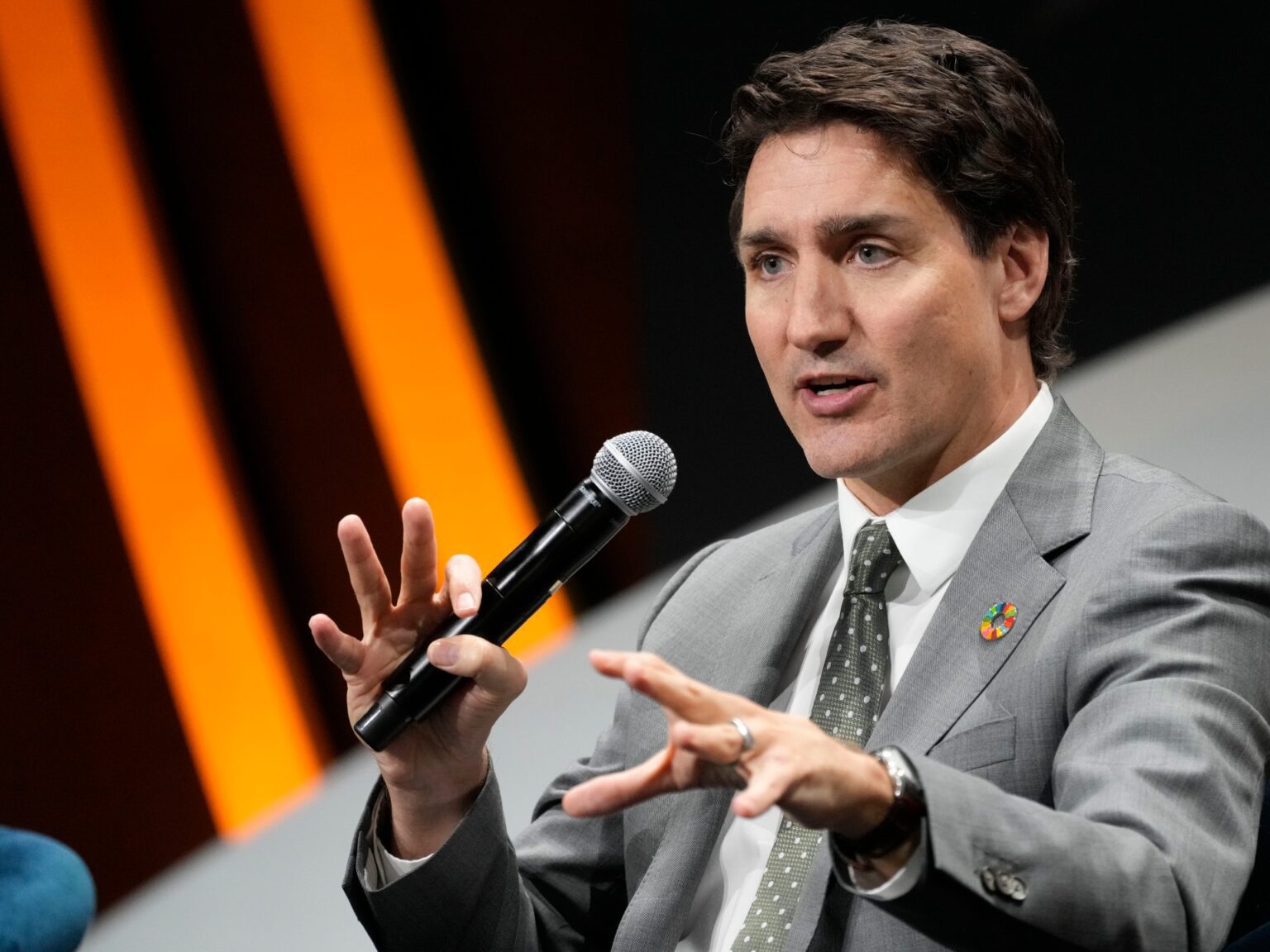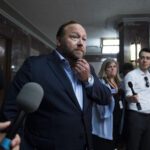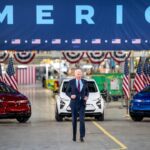Global Courant 2023-04-29 04:24:44
Canadian Prime Minister Justin Trudeau has delivered a speech denouncing the rise of authoritarianism around the world and calling on democracies to live up to their ideals through trade and foreign policy.
“If we don’t step forward, other forces will step in. As like-minded democracies, as great economies, we must work together to make it to this moment,” Trudeau said Friday in remarks to the Council on Foreign Relations, a think tank based in the US city. New York.
His speech caused a stir in countries like Russia and China, while encouraging Canada and its allies to strengthen their commitment to human rights through economic incentives.
“We can’t just push back or punish or pick bad actors. For example, we can’t just say that we want our companies to limit the amount of critical minerals they buy specifically from China,” Trudeau said.
“Instead, we should simply be committed to sourcing our critical minerals from places where forced labor is prohibited. They have safety standards. They pay their workers a living wage.”
He later commented, “The lithium produced in Canada is going to be more expensive because we don’t use slave labor.”
China is one of the world’s largest producers of lithium – a metal used in mobile phones and electric batteries – after Australia and Chile.
Trudeau also added that while his administration hopes to work with China on issues such as the environment, he says the Asian country has become “an increasingly disruptive global power”.
Tensions between the two countries were running high. Ottawa has accused China of meddling in the election and setting up overseas “police stations” in Canada, claims a State Department spokesman denied as “smears”.
A video also circulated in November of Chinese President Xi Jinping rebuking Trudeau for allegedly leaking to the media the content of their private discussions. China’s foreign ministry refuted claims of criticism between the two leaders, calling their conversation “normal”.
“We are going to challenge China on human rights issues, whether in Xinjiang or Hong Kong or anywhere else,” Trudeau said Friday, referring to regions where China has been accused of suppressing independence movements through repression. China has also denied abuses in those regions.
Canadian Prime Minister Justin Trudeau speaks with his Chinese counterpart Xi Jinping at the Summit of the Leaders’ Group of 20 in November (Adam Scotti, Prime Minister’s Office/Reuters)
Turning his attention to Russia, Trudeau applauded European allies who previously “relied on Russian fossil fuels” for turning instead to investing in clean energy alternatives. Canadian pro-oil groups have previously been accused of “opportunism” amid calls to ban Russian energy products.
The Canadian government has been an outspoken critic of the large-scale Russian invasion of Ukraine launched in February 2022, criticizing “unprovoked and unjustified aggression” that has led to “atrocities against Ukrainians”.
“War has returned to Europe and authoritarianism is on the rise,” Trudeau said Friday. “Antagonistic states around the world are using our economic interdependence for their own geopolitical advantage.”
Later, in a question-and-answer segment with think tank president Richard Haass, the prime minister more specifically highlighted Canada’s support for Ukraine, emphasizing the training of Ukrainian troops and calling for an increase in defense -expenditure.
“It’s not just, ‘Oh, war is back in Europe and we should all be concerned about that’. It is the underpinnings of our system that are directly challenged by an authoritarian state that should not succeed,” he explained. “Therefore as much as necessary, as long as necessary, until the folly and the mistake of (Russian President Vladimir) Putin’s decision is clear to everyone.”
Justin Trudeau (right) joins Ukrainian Prime Minister Denys Shmyhal for a press conference on April 11 in Toronto, Canada (File: Carlos Osorio/Reuters)
Trudeau also offered a vision for the end of the war in Ukraine. “We know this will not end militarily. This only ends with some political resolution. But Ukraine should be able to decide that.”
While the Canadian prime minister reserved praise for his American audience, he also called on the country and its allies to move away from isolationism and tackle poverty and inequality within their own borders.
“We talked about the superiority of our system, but turned a blind eye to the authoritarianism, the exploitation of workers and the environmental degradation on the other side of the world – on which our prosperity depended,” Trudeau said.
“And that prosperity? Those responsible also failed to ensure that the home was shared across the board. We failed to deliver on the promise of progress.”








